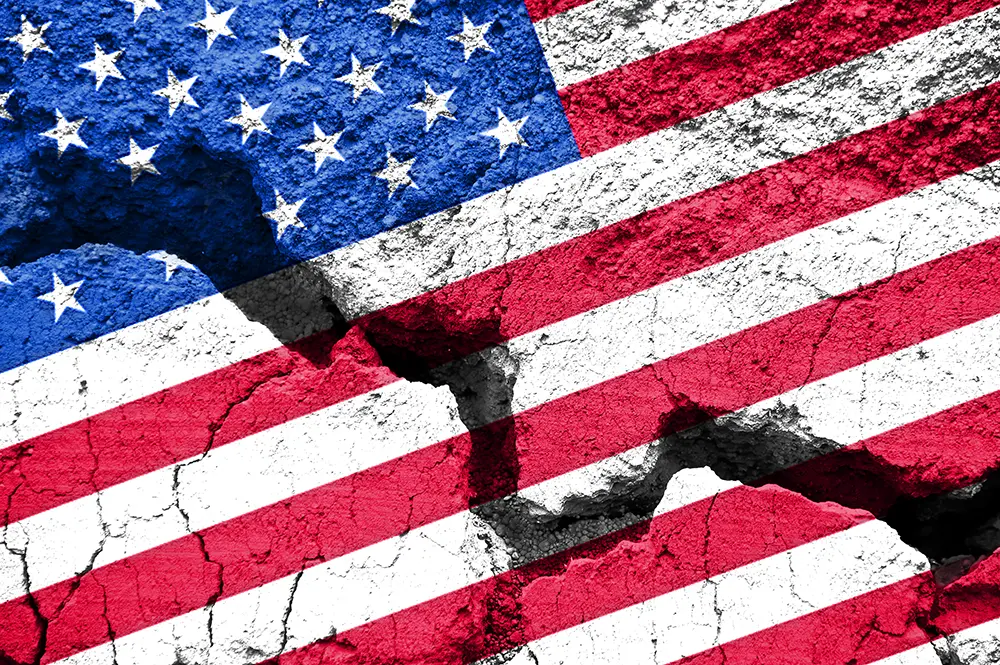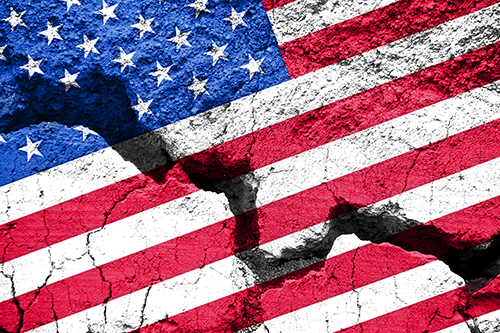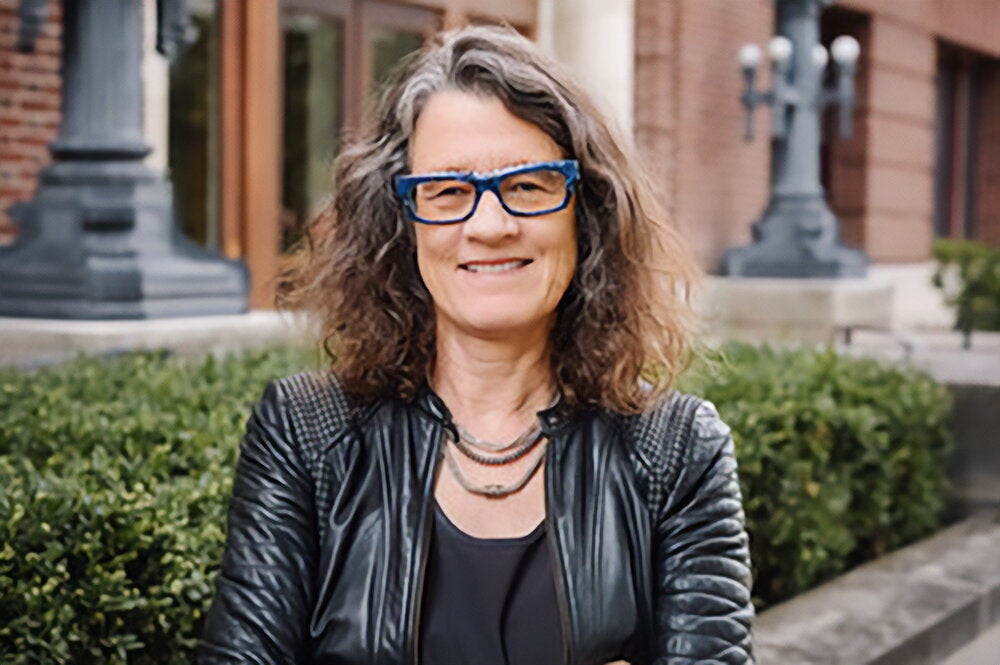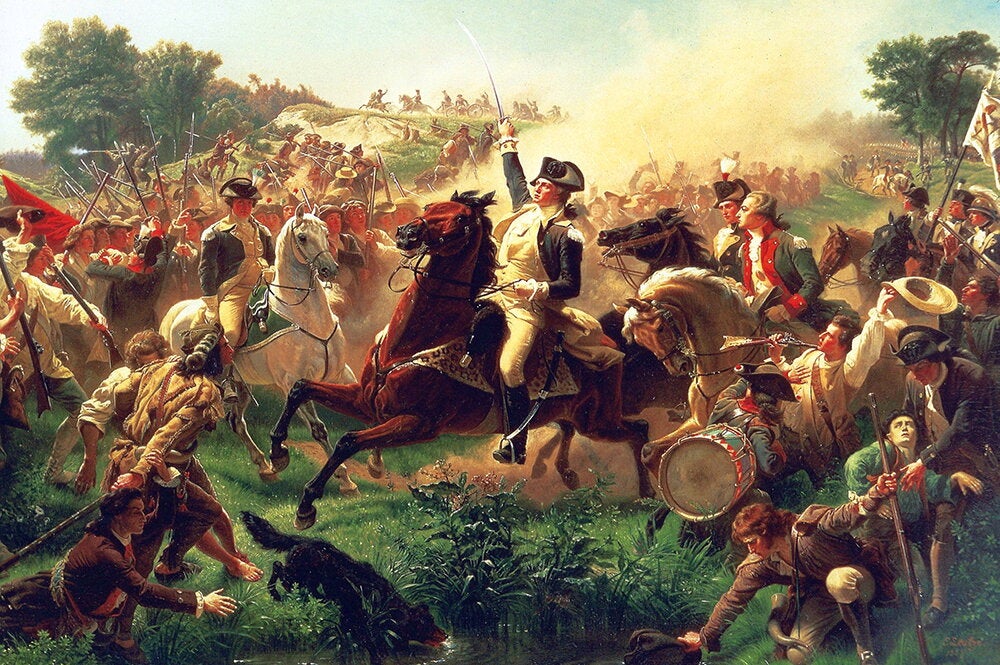

Reconciliation is an odd thing. It seems ideal to replace anger and conflict with warmth and respect, but, historically, people aren’t always ready to embrace the word. While many Americans have become weary of the nation’s political divisiveness, particularly in the wake of the November 2020 elections, experts in the College of LAS caution that there remain issues of race in the United States that make political reconciliation a tricky path.
History teaches us a lot about this. The United States is no stranger to political strife, with the nation’s most divisive era being during the Civil War. Bruce Levine, professor emeritus of history, said that, in addition to attempts at reconciliation after the war, there were attempts at conciliation before the war. Both attempts were plagued by ill intentions that did not rectify the terrible living conditions faced by Blacks in America, he said.
“Those who prioritized ‘conciliation’ before the Civil War wanted to mute, even bury, differences regarding that very fundamental issue of slavery. They called upon opponents of slavery to ‘reconcile’ themselves to slavery’s survival and even geographical expansion in order to ‘reconcile’ slaveowners and abolitionists, to make peace between slavery’s champions and slavery’s enemies,” Levine said.
He added: “After [the Civil War] (and after emancipation), those bent on ‘reconciliation’ sought to end federal defense of the rights of now legally free African Americans.”
Problems with reconciliation repeat throughout history, said Justin Holmes, a graduate student from the Department of Sociology who studies contentious politics, critical race theory, colonization/decolonization, and resistance. “There's this notion of reconciliation as coming together and breaking bread and being nice with each other and getting along,” he said. “From my experience, that kind of relation doesn't necessarily come about often.”
Holmes said the idea of reconciliation often “blinds realities of lived experiences.”
“It flattens [lived experiences] out [to] just say, ‘Okay, everybody just needs to get along,’ and mistakes conflict for people being angry, and it usually doesn't deal with the material reality of people,” he said. “When something that we can maybe call reconciliation does occur, it usually occurs when material reality for conflicting populations transforms.”
Teresa Barnes, director of the Center for African Studies and a professor of history and gender and women’s studies who has also studied South African history, said “reconciliation” was a word used by the South Africans as redress in post-apartheid politics.
“One of the important things that [the South Africans] did when apartheid was supposedly ending in the mid-1990s, was to choose to have a moment in their history to pause and think about what had happened to them but in a very circumscribed kind of way,” she said.
This was the Truth and Reconciliation Commission, which took place in Cape Town beginning in 1996. During this commission, victims of human rights violations were given the opportunity to describe the crimes against them in a court-like restorative justice system. It was seen as a transitional time to a free democracy, but it had its flaws.
Holmes, who also studied South African history, said that it was “powerful in a lot of ways to push back against retributive ideas of justice and rights, but it made it more difficult to organize for victims’ rights in later years because of the attitude that the issue was already addressed.
Historians see parallels between the Civil War era and South Africa in today’s United States. In February, U.S. Rep. Barbara Lee of California and U.S. Sen. Cory Booker of New Jersey reintroduced legislation to establish a United States Commission on Truth, Racial Healing and Transformation to “examine the effects of slavery, institutional racism, and discrimination against people of color, and how our history impacts laws and policies today.” Both versions have co-sponsors but neither has yet come up for a vote.
“There's some little glimmers of the beginning of the start to those kinds of difficult conversations,” Barnes said, though she believes the United States is “a long way” from people agreeing to sit down among a variety of perspectives and “deal with the concept of truth.”
“It would take a lot of political willpower and work to bring people to the table to (address) the racial divides in our country,” Barnes said. “Is there a way we can craft a common language to talk about what those abuses have been—and how we should understand them and how we can address them?”


